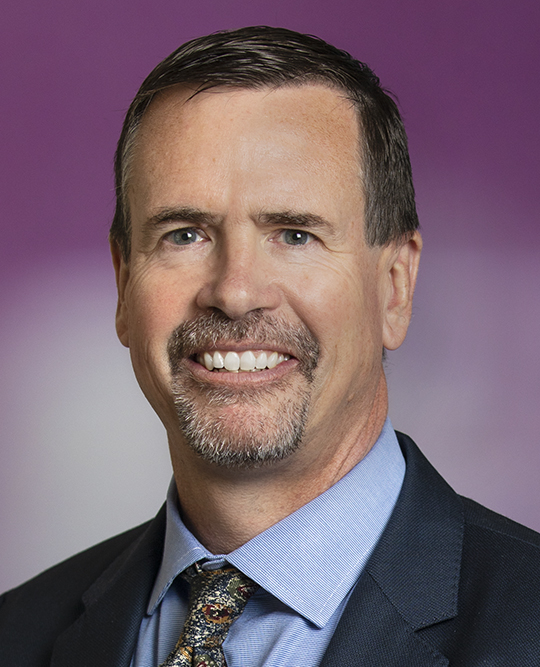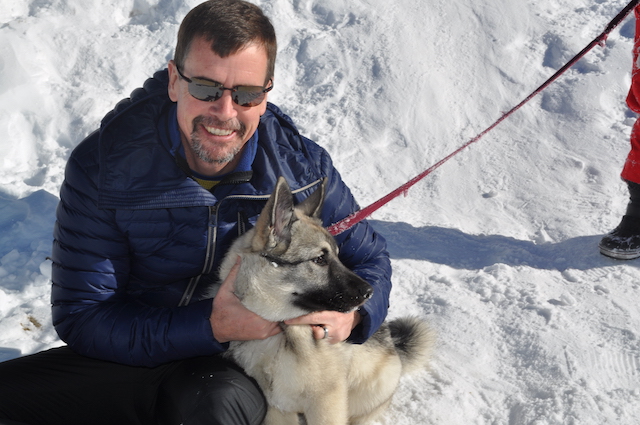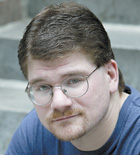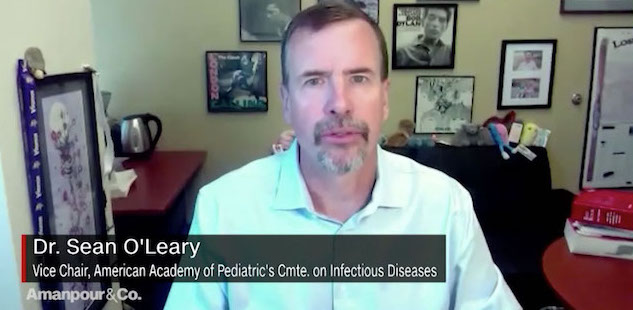As a spokesman for the American Academy of Pediatrics, Dr. Sean O’Leary talks about the impact of coronavirus on school openings. In this interview with Tom Deignan, he also talks about his heritage and the traditions that helped shaped his identity.
Dr. Sean O’Leary has vivid memories of lively family reunions from his youth, which took place in lesser-known Irish American outposts like Mitchell, South Dakota, and Albert Lea, Minnesota.
“The O’Leary family reunions were enormous. There were hundreds of O’Learys there. As a kid, it seemed like thousands,” recalls the Colorado-based pediatrician, who took a break this week from appearances on CNN, PBS, and other major news outlets, to talk to Irish America.

O’Leary currently serves as vice-chair of the American Academy of Pediatrics (AAP) Committee on Infectious Diseases. In the age of Coronavirus, that would make his insights into public health important enough. But as millions of American students return — or plan to return — to school, while also trying to avoid dangerous outbreaks of Covid-19, O’Leary was suddenly one of the media’s most sought-after guests.
Which is why he was glad to take a break from such weighty topics and reminisce about Irish family reunions — such as a particularly memorable one on July 4, 1976, when O’Leary’s paternal great aunt Kate turned 100, just as America itself celebrated its 200th birthday.
“[Being Irish] was really important to my Dad,” adds O’Leary, 51. “He read a lot of Irish history, read a lot of Irish writers — particularly Irish poets.”
The family’s Irish roots can be traced back to a great-grandfather from Ennis, known as “Red Pat.”
O’Leary has already taken numerous trips to Ireland, and says he wants to return, with his wife, Sonja, and two children, Myles, 16, and Luz, 12.

However, given what’s happened to O’Leary — and in the U.S. — in recent months, it’s going to be awhile before he gets back.
Just this month, millions of Americans — especially parents with school-age children — listened closely, as O’Leary spoke to CNN’s Anderson Cooper, on PBS’ Amanpour & Co, and many other media outlets.
“Honestly, I feel like I have three full time jobs right now,” says O’Leary, who practices at Children’s Hospital Colorado, and lives nearby in Denver.
O’Leary made the media rounds to discuss an AAP report released in mid-August, which was the most comprehensive analysis done yet, of statistics related to children and how they may (or may not) contract or spread Covid-19.
The report’s overall message? Children can safely return to school — but only if an extensive range of safety protocols are closely followed.
O’Leary’s own personal investment in this is based not only on two decades of experience as an infectious disease specialist and father of two. His mother was also a teacher, who worked in schools for four decades.
O’Leary was born on Chicago’s South Side — “at Little Company of Mary Hospital” — to a father who was a former priest, and mother who was a former nun.
An only child, O’Leary’s family moved to Texas when he was young, so that his father could pursue a Master’s degree.
His father eventually began a career as a social worker in the field of child protective services, while his mother worked as a science teacher.
“Until I was in 6th grade, I was pretty sure I was going to be a major league baseball player,” O’Leary recalled.
But by the time he attended Brown University, he was a pre-Med student, who also played collegiate Rugby. This took O’Leary to Ireland for the first time, where he saw plenty of Irish hospitality firsthand.
“We had played a match (and) somehow we missed our train back to Dublin,” O’Leary recalls. A car pulled up, and the driver asked the Americans why they seemed to be standing around. After explaining their situation, “The driver said ‘Hop in,’” before adding: “We’re taking you only because you’re Americans.”
O’Leary returned to Ireland — including a visit to West Cork where, he says, the family name originates — when he was in medical school, and received similarly warm welcomes.
“I’m really looking forward to returning with my family,” O’Leary adds.
Late last year, not long after O’Leary began assuming more responsibilities with the AAP’s Committee on Infectious Diseases, there were news reports about a “novel” — and deadly — infectious disease outbreak in Asia.
“I think it really hit me in late February,” said O’Leary, recalling a meeting at which Nancy Messonnier, the CDC’s head of immunization and respiratory diseases, was a speaker.
“She really sounded the alarm,” O’Leary recalled — even though, at the time, there were a mere handful of cases in the country.
America’s initial response, O’Leary says, only made things worse.
“The U.S has done just a horrible job handling this, as a nation. The response has become political — even at the individual level. It’s unique in the world.”
In terms of children safely returning to school — and America’s post-virus future — O’Leary can’t help but strike a somber tone.
“It’s hard not to feel discouraged,” he says, before noting that some key statistics are currently headed in positive directions.
“We have to accept that (there’s a lot we don’t know yet) and be really humble. And recognize we may need to change things very quickly, as we learn more about (the disease in schools).”
O’Leary adds: “I can’t wait until we get to the other side of this — but it’s not going to be in a month.”


Tom Deignan is an author, teacher, and columnist for the Irish Voice and Irish America (tdeignan.blogspot.com).


Leave a Reply